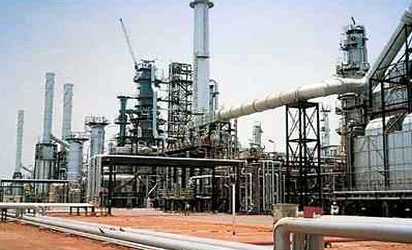 It is with delight that I read about government’s plan to privatize our national refineries/petrochemical plants. Industry experts have been clamoring for some time now for this event to occur. I believe it’s an idea whose time has finally come, and would usher in an era of expansion of the downstream petroleum industry in Nigeria whereby new refineries/petrochemical plants would be constructed and existing ones rehabilitated and debottle-necked (i.e. expanded).
It is with delight that I read about government’s plan to privatize our national refineries/petrochemical plants. Industry experts have been clamoring for some time now for this event to occur. I believe it’s an idea whose time has finally come, and would usher in an era of expansion of the downstream petroleum industry in Nigeria whereby new refineries/petrochemical plants would be constructed and existing ones rehabilitated and debottle-necked (i.e. expanded).
Industries that derive feedstock from refineries and petrochemical plants could be established by private companies, such as ammonia and fertilizer companies, etc. Let’s briefly examine the state of play in our refining/petrochemical sector, and to appreciate why the government has decided to privatize these.
Nigeria’s three refineries are over-aged and new refineries are yet to be constructed. For instance, the newest refinery (i.e. the new Port Harcourt refinery) was commissioned in 1989 which is roughly 24 years ago. All national refineries have been operating inefficiently for the past 15-20 years.
Average capacity utilization is in the range of 18 -25%, thereby placing our national refineries at the bottom of the ladder among African refineries. The age of the refineries is not entirely the cause of low capacity utilization. The poor performance of the refineries may be attributed to factors such as wrong business model, inadequate governance structure, poor maintenance/rehabilitation regime, supply chain constraints, etc. The most critical of these factors is the structure of the business model and this is why.
NNPC (a monopoly organization) has several subsidiaries, and the relationship between these is sometimes unclear and awkward. This is the case with the relationship between PPMC and NNPC refineries. PPMC supplies all crude feedstock to the refineries (i.e. single supplier). PPMC evacuates all refined products (i.e. single off-taker). PPMC owns and repairs all pipelines carrying crude oil to the refineries and those evacuating refined product (i.e. single pipeline owners and maintenance company). The refineries are paid a processing fee by PPMC, so there is no incentive to keep costs down. To make matters worse, repairs and maintenance budgets are approved along lines of a ‘complex chain of command’ which commences from the Federal Executive Council level to NNPC board, and then goes further down the ‘food chain’. Therefore, the refinery managers have no control whatsoever over their businesses. They are wholly dependent on PPMC for their survival. Any negligence or sabotage of PPMC pipeline operations has an immediate and direct impact on the efficiency and performance of the refineries. The foregoing provides the logic behind calls for privatization of NNPC refineries.
Next step would be to call in the Bureau of Public Enterprises (BPE) and reputable consultants to assist in defining the guidelines for privatization. It has been suggested that some critical ideas be incorporated into a privatization programme for the refineries to ensure the protection of vital national interests and guarantee efficiency and sustainability. First, government will have to divest majority shareholding (at least 51%) to the private sector within the framework of existing legislation. Private investors must include a core foreign investor with background and experience in petroleum refining, requisite technical and financial capability, and vision and commitment. As soon as normal operations are resumed, government will be expected to off-load the bulk of its percentage holding to industry stakeholders and the general public and retain a small percentage (golden shares) for the national oil company. The core foreign investor will assume the role of operatorship. The refineries should be free to source their crude feedstock and sell to multiple off-takers. Incentives should be provided to attract the right caliber of investors e.g. tax holidays, import duty and VAT exemption, etc. Meantime, only short-term basic repairs should be carried out to enable the refineries sustain reasonable operations and keep their employees engaged until the privatization exercise is completed.



























